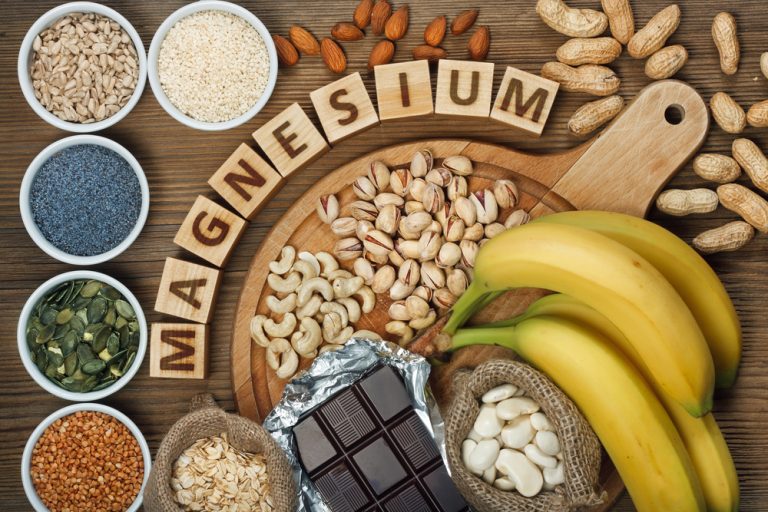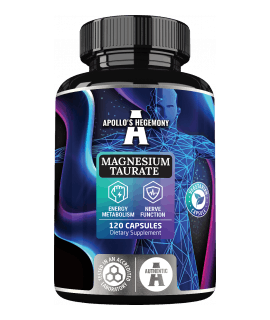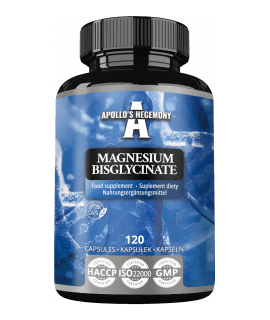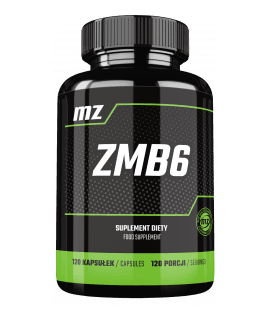Are you getting enough magnesium? The answer is probably not! 40% of men and 70% of women are not getting enough of this essential mineral, with magnesium deficiency on the rise.
What’s so great about magnesium?
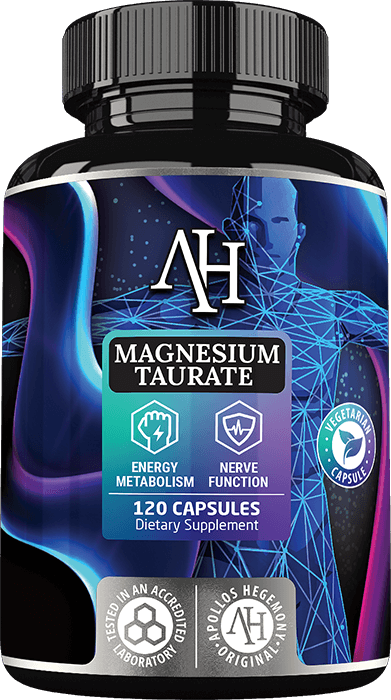
It’s responsible for over 300 biochemical reactions in the body and impacts blood pressure, metabolism, immune function, muscle and nerve function, blood sugar levels and is involved in protein synthesis. The majority of magnesium (around 60%) is found in the bone, with 26% found in muscles and the rest in soft tissue and body fluids.
Low magnesium levels have been associated with an increased risk of cardiovascular disease, osteoporosis, metabolic syndrome, hypertension and type 2 diabetes.
Why are so many of us not getting sufficient amounts?
The depleted soil conditions has resulted in plants (and also the animals that feed on these plants) being lower in magnesium. Magnesium content in vegetables has seen declines from 25-80% since pre-1950 figures and typical grain refining processes for bread and pasta remove 80-95% of the total magnesium. Uses of certain chemicals in the water supply can also make magnesium less available in water since these chemicals can bind to magnesium. Modern life conspires to help us lose what little magnesium we do get in our diet. Common substances like caffeine, salt, carbonated drinks, processed foods and sugar can also deplete the body’s magnesium levels. Profuse sweating, stress, chronic diarrhoea, antibiotics, diuretics and intestinal parasites can also decrease magnesium levels.
The fortunate (but small) percentage of the population that eat foods grown in magnesium-rich soil, drink magnesium-rich water and avoid all of the things listed above should be okay. But what about the rest of us? Well, it looks like we might need some additional magnesium.
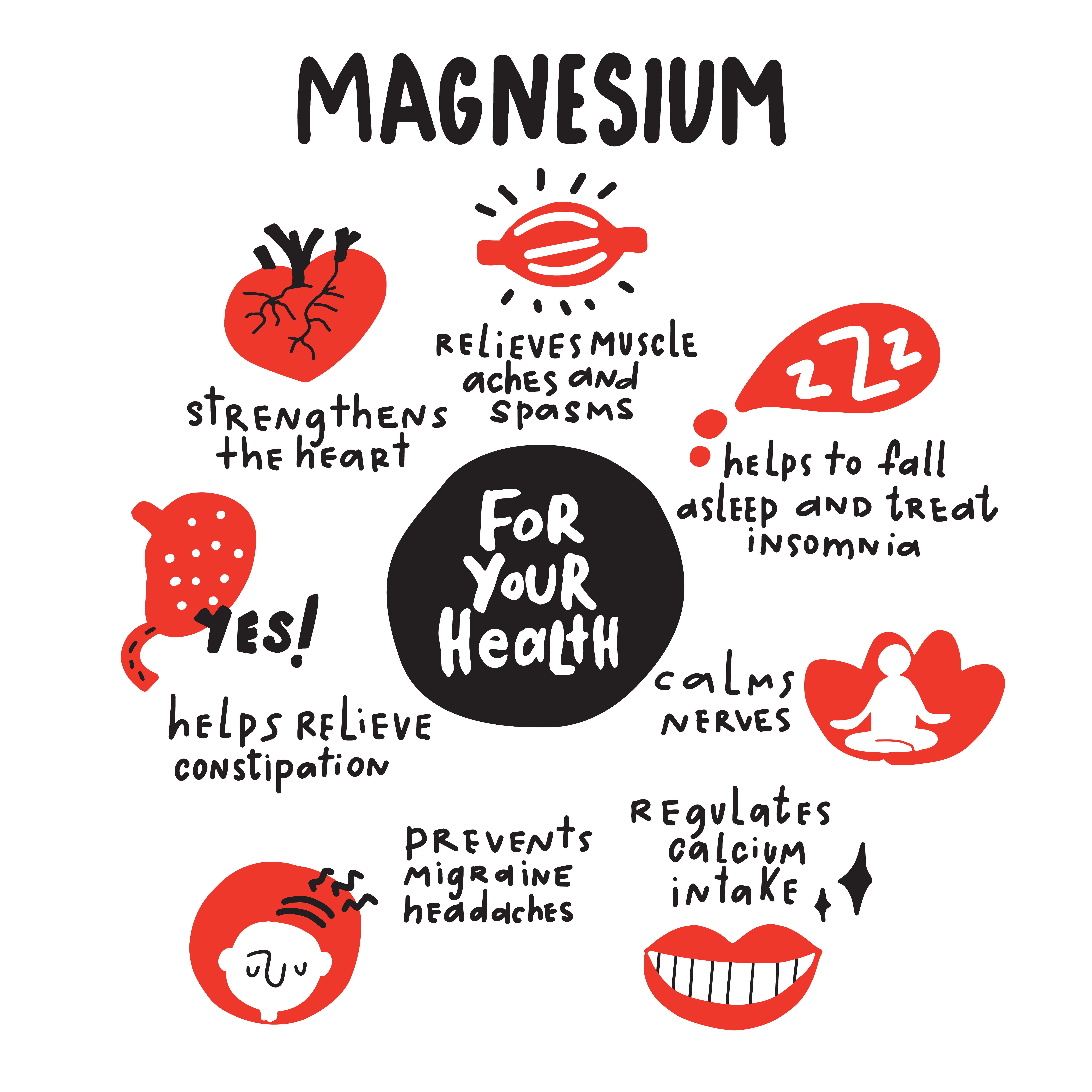
Signs of magnesium deficiencies
Brain fog, poor concentration and forgetfulness
Mitochondria are structures within every single cell in the body and are dependent on magnesium. They’re responsible for energy-production and the brain contains very high concentrations of mitochondria so a magnesium deficiency can impact your brain performance. Supplemental magnesium has shown to improve learning and memory.
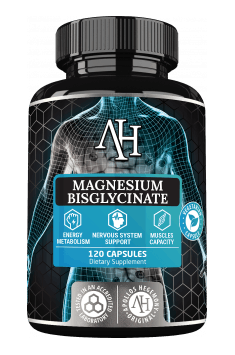
Fatigue
Magnesium is crucial for energy production, due to the mitochondria in cells being reliant on magnesium. As well as this, magnesium supports the adrenal glands which play an important role in energy production too. Due to magnesium being involved in so many enzymatic processes in the body and a deficiency making it harder to perform these processes, this can be a big stressor on the body and drain your energy.
Muscle cramps and spasms
If you’re feeling your muscles cramp up regularly and suffering with spasms in the legs, feet and even the eyelids, it could be down to a magnesium deficiency. When magnesium levels are low, muscle contractions can become uncoordinated and this can result in involuntary spasms and cramps. It’s even more important to ensure you have sufficient magnesium when exercising. When exercising a lack of magnesium can lead to a build up of lactic acid leading to sore muscles and fatigue. If you find yourself in this situation, a magnesium salt bath or a supplement is worth thinking about.
Anxiety
I like to refer to magnesium as the relaxation mineral. Adequate magnesium levels shift the body out of the sympathetic nervous system state (fight or flight) and into a parasympathetic state. Activation of the parasympathetic nervous system allows us to reduce excitability in the body, increase circulation by opening up the blood vessels and promoting relaxation. Magnesium plays a crucial role in regulating neurotransmitter balance and is involved in GABA production, which is our calming neurotransmitter so if we’re not able to produce enough GABA, this can result in conditions such as anxiety, insomnia, irritability and general mood imbalances.
Magnesium absorption
To further complicate it all, magnesium is often poorly absorbed and easily lost from our bodies. For proper magnesium absorption, we need a lot of it in our diet, plus enough vitamin B6, vitamin D and selenium too. The RDA is 300mg for adult males and 276mg for adult females. However, most of us get less than 200mg per day.
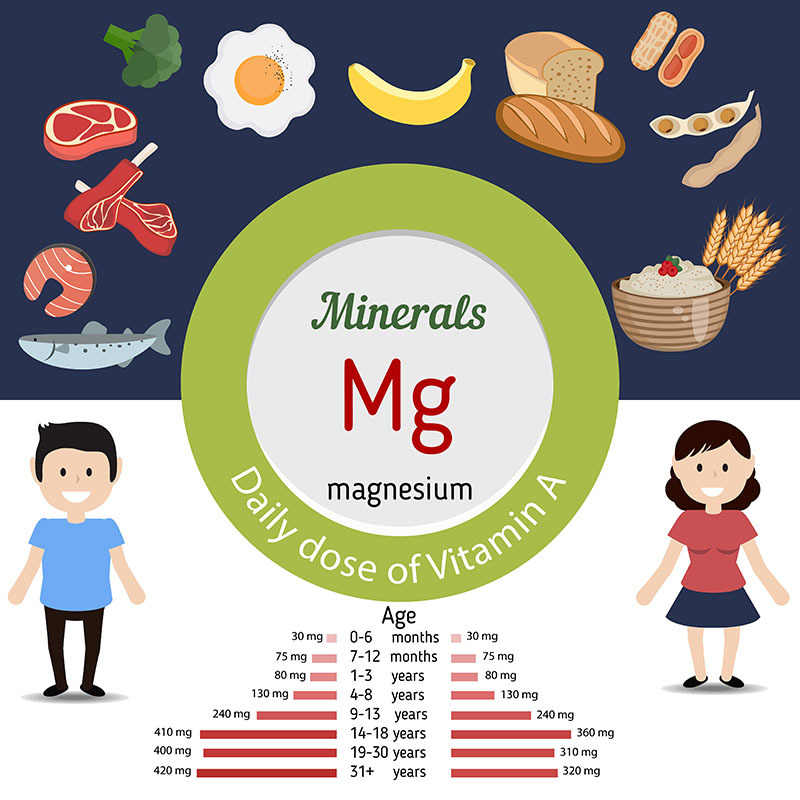
The good news is that magnesium deficiency is easy to correct. Firstly try and reduce your intake of coffee, carbonated drinks, salt, sugar and alcohol. Then look to increasing magnesium rich-foods such as almonds, wholegrains, green leafy vegetables, dark chocolate, pumpkin seeds, spinach, broccoli, lentils and sesame seeds. However, as explained earlier, the poor quality of soil nowadays and modern life can make it difficult to obtain all the magnesium we need. Therefore, supplementation can help.
The most absorbable supplement forms of magnesium are magnesium citrate, glycinate, taurate or aspartate. Most minerals are best taken as a team with other minerals in a multi-mineral formula. People with kidney disease or severe heart disease should take magnesium only under a doctor’s supervision. Epsom salts are also a form of magnesium (usually sulfate or chloride) that can absorb into the body through the skin while you soak in a bath.
Magnesium - summary
Stress is always going to be a part of our daily lives, whether we like it or not. With the overbearing presence of social media, long hours at work, appointments, kids and everything else, we need to look at ways of managing this unavoidable stress. This one mighty mineral can play an important role in doing just that.
